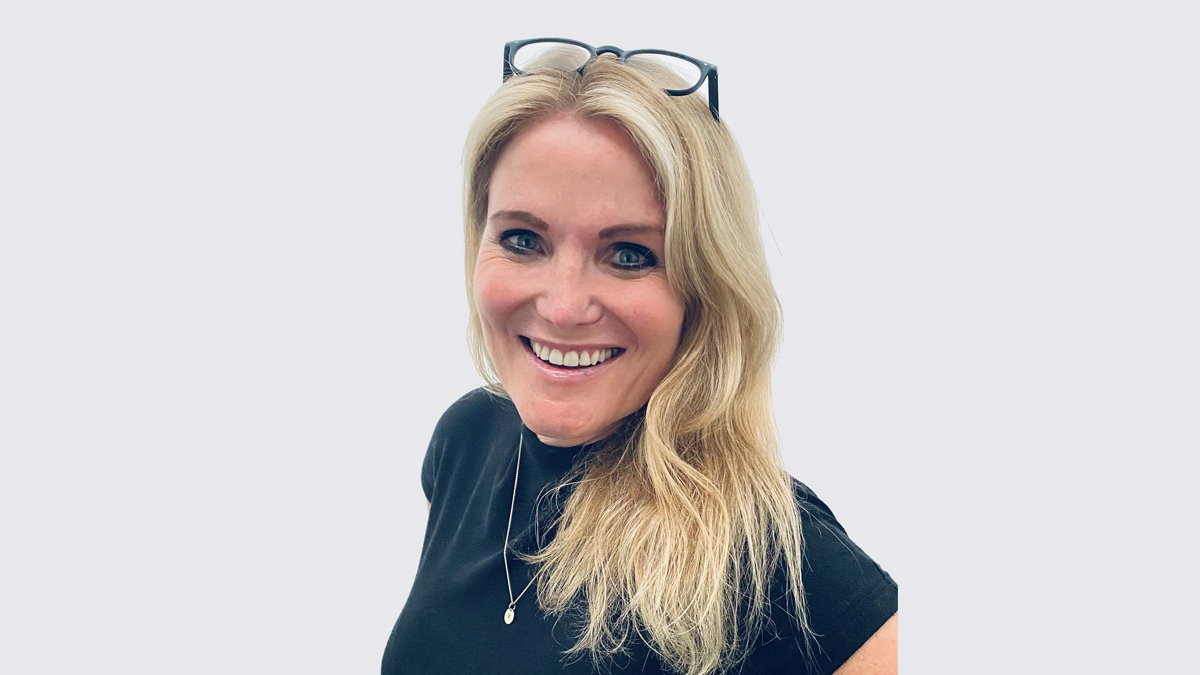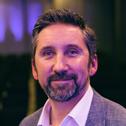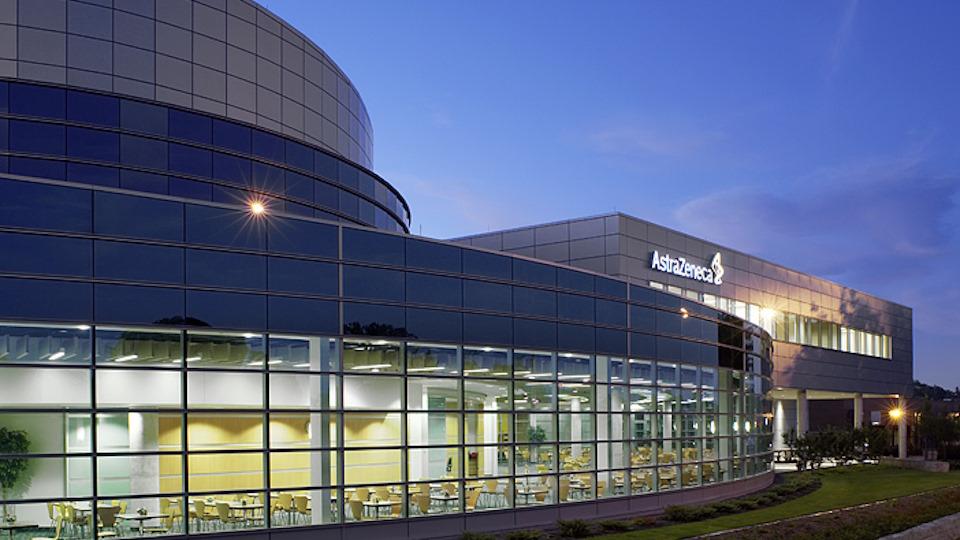Alexion’s Camilla Harder Hartvig on making the impossible possible in rare disease

Alexion’s senior vice president of its international business talks to Paul Tunnah about the importance of “people-centred and vulnerable” leadership, the surprising impacts of COVID and the promising future for treating patients with rare diseases.
Alexion is a somewhat unique pharma company in that it focuses almost entirely on rare diseases – and although this is an immensely challenging area to operate in, the company’s senior vice president of its international business, Camilla Harder Hartvig, says it provides an unparalleled “sense of mission”.
“Once you start working in rare disease, you get so inspired by the patients. By all rights they should come across as vulnerable, but actually they show incredible strength and such a passion to live a normal life that it inspires us to find innovative ways to improve their lives.”
Hartvig says this can be felt across all levels of the company.
“Often people who interview with us have a personal story about how they themselves, a friend or a family member has been affected by a rare disease. That extra gear of compassion and empathy is crucial in this business, because it means we can speak with a different voice, and that we understand how difficult it is for these patients and their families.”
Hartvig says that this sense of mission has also been a huge influence on her own leadership style.
“I’ve seen that leadership is not just about the business. For me, leadership is about people. It's about the connections that you make and the connections you help create.
“For example, helping patients with rare diseases requires us to build strong partnerships with experienced stakeholders, because only by working together can we improve the path to access for innovative therapies, which in turn improves the lives of the patients we are committed to.”
She also speaks to the importance of being “open and vulnerable” as a leader in rare disease pharma.
“Leading with openness and transparency gives a team permission to do the same, so that we know we're all just human beings working together with a great purpose. From that comes heartfelt and genuine discussions.
“I honestly feel that vulnerability fuels trust and creates the strongest relationships, which can then transform performance and ultimately bring more success to an organisation. It's about empowering and enabling others to do extraordinary things for the sake of everyone's success.
“I'm very lucky to have the team I lead these days; no matter where we are in the world, we all have the same agenda of helping each other to do their best for patients. That feels really special.”
Alexion’s uncommon focus means the company concentrates its efforts in rare diseases that have limited to no effective therapeutic options available.
“If we don't do our work, there's no one else that can fill that gap,” says Hartvig. “This mission really drives us to work hard and seek opportunities to advance innovative solutions to system-wide challenges faced by rare disease patients.”
This includes the massive difficulties rare disease patients face in getting a diagnosis – which Alexion terms ‘the diagnostic odyssey’.
For example, the company recently launched Rare Answers, a system of innovative and sustainable tools that are designed to help shorten the diagnostic journey for children with a rare disease – developed in collaboration with leading children's hospitals and technology and data science companies.
The Rare Answers tools are designed to deliver actionable data to physicians by analysing phenotypic and genomic data, incorporating precision software, medical information, and clinical insights.
“The future for rare disease diagnosis is looking a lot smarter, faster and quicker,” says Hartvig.
She adds that working in rare disease is unique in that there is an “overwhelming need” to be agile and flexible.
“Working in disease areas where so little is known, and where the few patients and experts that exist are dispersed across the globe, means that we have to think outside of the box and simply cannot deploy a traditional approach to drug development. We have to be innovative to get around those challenges.
“I think there’s a lot that drug development for more common diseases could learn from rare disease R&D.”
Rare diseases during COVID
This predilection for agility and flexibility came in handy during the early stages of the COVID-19 pandemic, when rare disease patients required treatment and research continuation.
“To do that, we implemented various mechanisms to allow us to continue working effectively – such as telemedicine and remote monitoring so that we could continue to successfully enroll and conduct clinical trials,” says Hartvig.
Like other companies, Alexion ensured continuity of supply by increasing stock quantities to make sure the company could manage individual crises on a hospital-by-hospital basis.
“Managing the distribution to all hospitals and mitigating the logistical problems that have arisen from the crisis has been critical, and our global operations and supply team have done an incredible job,” says Hartvig. “I'm not aware of a single moment where we missed a beat. It made the local organisations feel incredibly secure in their connections with external stakeholders and different hospitals because they knew we could supply.”
She adds: “All in all, I think the industry has navigated the pandemic better than we thought possible.
“Again, I believe that all comes down to having people who want to serve patients in the best way possible. That really comes to the fore during a crisis, because we know that patients can be even more vulnerable then.”
Hartvig has also found that the stakeholders Alexion works with have become more open to innovation in the rare disease space.
“For example, we were finally able to offer treatment outside of the hospital setting for one of our therapies. Before COVID, some health authorities were very reluctant to permit that.
“When we come together like this, innovation can happen a lot faster.”
She says she is “truly amazed” about what the industry has achieved in such a short time when it comes to innovations, vaccines and treatments.
“We’re now looking at a situation where most people in Europe will be offered some level of protection against this virus well before the end of the year, and all this has been achieved while we as an industry have protected the supply chain and continued to get other vital medicines to people suffering from completely unrelated conditions.
“It's as if we learned that we have a different gear. We’ve seen that we can do far more than we believed, and I'm absolutely certain that we will look back at this moment as a paradigm shift for the industry.
“If we can maintain this momentum to get other new treatments through regulatory processes at a greater speed, then we will likely see a massive transformation in care and management for patients.”
She adds that it will be important for the industry to “stick its landings” in order to improve the overall quality of health for patients.
“The uncertainty has liberated us to create new ways of working; we've become better at challenging ourselves to do what should have been impossible.
“I don't think anyone will ever say to me, ‘This isn’t possible’ ever again. We will always need to remember what we were able to do during the pandemic."
Exceeding expectations with digital
Hartvig, like many, believes that the rapid digital transformations seen during COVID will be another permanent change to result from the pandemic.
“I honestly don't see why we would go back to a world where we do things the traditional way. We were already putting digital at the core of much of our operations, but the pandemic really required us to accelerate that massively.”
Alexion quickly closed all its offices and began operating remotely to make sure employees didn’t feel an obligation to have to come into an office. Meanwhile, when it came to patients, the goal for the company was to be “agile and solution-driven” while also removing burdens on healthcare systems
“I'm not saying that it was easy, but once everybody figured out that lockdown wasn’t just going to be a two-month thing, our mantra was that we should pilot in every corner possible to see what we can learn from going digital, and co-create with other stakeholders to find out what works.
“That's why I have very high hopes that when the world opens up again, we will have found incredible ways of being digital – both with our employees and our stakeholders.”
She adds, though, that it will also be important to find the “right time” for physical interactions.
“I definitely believe that there will be a balance between the two modes, but we have now all seen that we can actually exceed expectations by being fully digital.
“Online communication now seems the natural way to get things done, and the sky's the limit for what we can achieve for our rare disease patients if we continue to drive this innovation and this openness.”
Many rare disease patients have been hit hard by the pandemic – Alexion supported the patient organisation Genetic Alliance UK to run a survey of more than 1,000 people living with or caring for people with rare diseases, and found that almost two-thirds of patients reported that their care has been disrupted due to COVID-19.
“As a rare disease company, we believe that more needs to be done to ensure patients with rare diseases can access their treatment remotely in times of crisis, for example by allowing home infusions,” says Hartvig.
“We are pouring more resources into advocating for policy changes and greater education to help improve the patient experience – not just to help during this crisis, but to prepare us for future crises.”
The future of rare disease pharma
Nonetheless, Hartvig is optimistic for the future of rare diseases as a whole, as further discovery of genetic biomarkers continues to improve diagnosis and treatment.
“That will improve the patient outlook in a way that would have seemed impossible just a few decades ago.
“While rare diseases were once seen as forgotten diseases, there is now a much greater sense of urgency, because we know lives are at stake.
“Soon we're going to start getting answers much more quickly to disease challenges that, until now, have seemed impossible to explain.”
About the interviewee
 Camilla Harder Hartvig is senior vice president and head of international at Alexion Pharmaceuticals, leading the company’s International commercial operations and managing the regional functions at the International Headquarters based in Zurich, Switzerland.
Camilla Harder Hartvig is senior vice president and head of international at Alexion Pharmaceuticals, leading the company’s International commercial operations and managing the regional functions at the International Headquarters based in Zurich, Switzerland.
Recognised as a highly experienced biopharmaceutical executive, Camila has spent her entire professional career in the pharmaceutical industry, with over 20 years of experience. Camilla has a well-recognised track record working with various multinational companies, including AstraZeneca, Novartis and Allergan.
About the author
 Dr Paul Tunnah founded pharmaphorum in 2009, which combines industry leading publications (www.pharmaphorum.com) with a specialist strategy and content marketing/communications consultancy (www.pharmaphorumconnect.com). He is a recognised author, speaker and industry advisor on content marketing, communications and digital innovation, having worked with many of the world’s leading pharmaceutical companies and the broader ecosystem of healthcare organisations.
Dr Paul Tunnah founded pharmaphorum in 2009, which combines industry leading publications (www.pharmaphorum.com) with a specialist strategy and content marketing/communications consultancy (www.pharmaphorumconnect.com). He is a recognised author, speaker and industry advisor on content marketing, communications and digital innovation, having worked with many of the world’s leading pharmaceutical companies and the broader ecosystem of healthcare organisations.
In June 2020, he became chief content officer for Healthware Group, a next-generation integrated consulting group that operates at the intersection of the transformation of commercial operations and digital health, offering a unique range of services combining design, strategy, communication and innovation with technology and corporate venturing.
Connect with Dr Tunnah at https://www.linkedin.com/in/paultunnah/ or https://twitter.com/ptunnah













